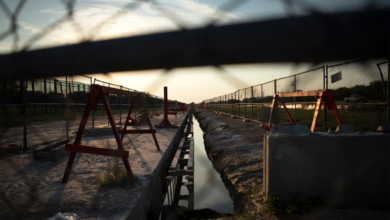
Letter To The Editor: Responding To Local Victims Of Abuse
Melissa Rodriguez | Hays-Caldwell Women’s Center Director of Community Partnerships
The phone rings at 3 AM. It means there is a victim of sexual assault, child abuse, or domestic violence who needs our help at one of our local hospitals.
This particular night, the call is for a 32-year-old mother of four who had been both physically and sexually by her husband of 12 years.
HCWC is the first responder who answers that call.
24 hours, 7 days a week – every single day of the year, we provide support and resources, including listening while they share their stories, answering questions, or just being there following their traumatic experience.
The Hays-Caldwell Women’s Center (HCWC) has been serving local victims of domestic violence, dating violence, sexual assault, and child abuse since 1978.
In March, the pandemic didn’t stop abuse and violence from happening. In fact, for some – it increased.
For many, the pandemic meant fear and confusion, not knowing what to do and who to listen to for direction. One thing we knew how to do: respond to our community members in crisis.
Our McCoy Family Shelter quickly adapted to changes to ensure the safety of those who needed protection.
“When the pandemic started, many of those in the shelter at that time left. Only a handful of our residents stayed. We didn’t know how easily COVID would spread, so we increased our cleaning protocols and enforced new safety rules. We were also worried about those who would call for help but never made it into the shelter, mostly due to fear of the unknown,” said HCWC’s Shelter Program Director, Desiree Norman.
Along the way, the staff has adjusted services. Phone calls, tablets, even Smart TV’s in every bedroom were initially how staff delivered programming.
“I’m proud of my staff for always thinking of creative ways to ensure every person got what they needed. From delivering meals, clothes, medications when one of our families needed to be quarantined to rearranging existing group meeting spaces to create better social distancing, the shelter team was there to meet the needs of our clients. Our counselor even began using QR codes for support groups, eliminating the need to provide paper handouts and risk possible contamination or exposure.”
As COVID-19 continues to affect our everyday lives, HCWC will continue to focus on providing free, confidential services to our community during times they need us most.
If you or someone you know has experienced domestic violence, dating violence, sexual assault or child abuse, call our 24-hour HELPLine at 512-396-4357 or visit our website at www.hcwc.org for more information. We are here for you.






